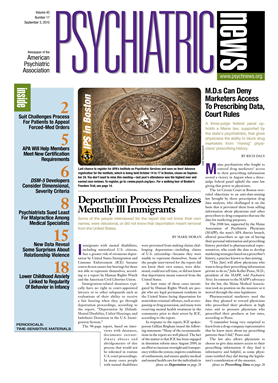Congress is taking a larger role in federal efforts to reduce the widespread and growing problem of prescription drug abuse, as evidenced by Senate passage of a bill to legalize disposal of all medications within state-run drug-collection programs.
The Senate on August 3 unanimously passed legislation (S 3397) introduced by Sen. Amy Klobuchar (D-Minn.) to give patients a safe and responsible way to dispose of unused prescription drugs, including narcotics. The legislation comes in the wake of repeated federal campaigns in recent years that urged patients to dispose of expired or unwanted prescription drugs in their homes to avoid the risk of teenagers or drug abusers gaining access to them. However, most people have had few disposal options because federal law bars turning in controlled substances to state or private drug-disposal programs.
The Secure and Responsible Drug Disposal Act of 2010 addresses this disconnect in federal drug policy by allowing patients or their families to deliver unused medications to state and private “drug take-back” programs.
The Senate bill is similar to a bill (HR 5809) that the House Energy and Commerce Committee approved in July.
Up to 17 percent of prescribed medication goes unused, according to the bill's supporters, and likely contributes to the growing rate of teenagers' abuse of prescription drugs, which is second only to their rate of illegal marijuana use.
The legislation has the support of 41 state attorneys general, the Drug Enforcement Administration, and the Department of Justice. APA does not have a position on the legislation.
Drug take-back programs currently operate in at least 18 states, according to the Drug Take-Back Network, an online information center that seeks to encourage such initiatives.
The bill also would authorize long-term-care facilities to dispose of their residents' unused medications.
“Unused and unwanted medication creates a health hazard, but federal law currently prohibits people from giving their old medication to established drug take-back programs,” said Sen. John Cornyn (R-Texas), one of the bill's cosponsors, in a written statement. “As a result, unused medication is often diverted by drug abusers or improperly flushed into our water system.”
Both bills were careful to rely on established medication-return programs instead of introducing a requirement that pharmacies accept the return of unused medications, as some advocates concerned with reducing prescription drug abuse have urged. Mandatory participation by pharmacies was opposed by their trade groups because of concerns that medications returned to pharmacies could be contaminated with infectious diseases or hazardous substances.
Progress on both bills followed the June launch of the bipartisan Congressional Caucus on Prescription Drug Abuse, which aims to raise awareness of medication abuse and to work toward innovative and effective policy solutions that include treatment, prevention, law enforcement, and research components.
The leaders of the new caucus cited a recent Substance Abuse and Mental Health Services Administration (SAMHSA) report to illustrate the need for more congressional involvement in responding to this problem. The SAMHSA report described a 400 percent increase from 1998 to 2008 in the number of people admitted for treatment of prescription-drug abuse. The report noted that nonmedical users of prescription pain relievers were most likely to obtain the medication from a friend or family member rather than their physician.
“Prescription drugs have become the drug of choice because of easy access—with over half the people abusing prescription pain relievers getting them from family and friends,” said Rep. Mary Bono Mack (R-Calif.), a caucus founder, in a written statement.
The efforts by Congress to address rampant misuse of prescription drugs come after several campaigns in recent years by the Office of National Drug Control Policy and other federal agencies to educate the public and physicians on the need to dispose of unneeded or out-of-date medications.
A more comprehensive physician-education initiative focused on preventing prescription opioid abuse and formulated by the Food and Drug Administration was rejected in July by an advisory panel because it was voluntary rather than mandatory and seen as too closely tied to the pharmaceutical industry, which would have designed and carried out the educational program (Psychiatric News, August 20).
Information on the prescription-abuse legislation can be accessed at <http://thomas.loc.gov> by searching on the bill numbers, S 3397 and HR 5809. 
